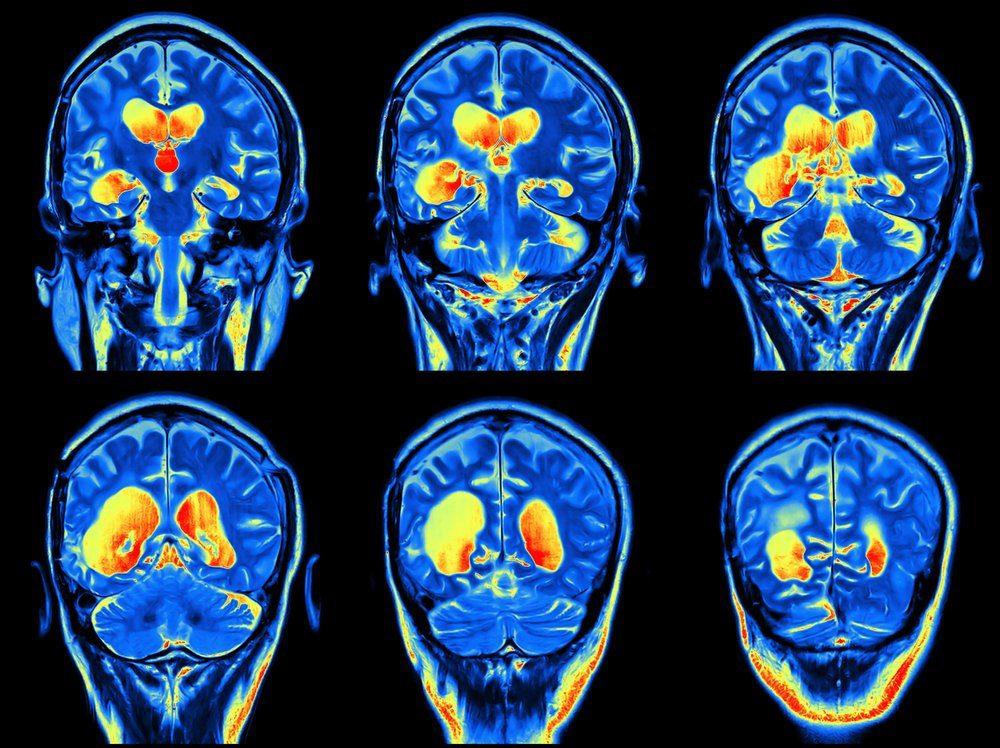People With Mild COVID-19 May Experience ‘Serious’ Brain Disorders: UK Neurologists
Tyler Durden
Wed, 07/08/2020 – 12:35
COVID-19 is quite the enigma. For most patients who contract it – especially those under the age of 65, symptoms are mild or non-existent. For symptomatic patients who draw the short straw, the disease can be brutal. Symptoms can include lung issues, heart damage, loss of taste and smell, tingling in fingers and toes, skin disorders, and the fact that it lasts for months in some people.
Now, we find that a small number of recovering COVID-19 patients with mild cases may suffer ‘mild to potentially fatal brain disorders’ triggered by the virus, according to a new manuscript by neurologists from the UK.
On Wednesday, they published the details of more than 40 patients whose complications ranged “from brain inflammation and delirium to nerve damage and stroke.” The neurological issues were some patients’ first and primary symptom.
The cases, published in the journal Brain, revealed a rise in a life-threatening condition called acute disseminated encephalomyelitis (Adem), as the first wave of infections swept through Britain. At UCL’s Institute of Neurology, Adem cases rose from one a month before the pandemic to two or three per week in April and May. One woman, who was 59, died of the complication.
A dozen patients had inflammation of the central nervous system, 10 had brain disease with delirium or psychosis, eight had strokes and a further eight had peripheral nerve problems, mostly diagnosed as Guillain-Barré syndrome, an immune reaction that attacks the nerves and causes paralysis. It is fatal in 5% of cases. –The Guardian
“We’re seeing things in the way Covid-19 affects the brain that we haven’t seen before with other viruses,” said Michael Zandi, a senior author on the study and a consultant at the institute and University College London Hospitals NHS foundation trust (via The Guardian).
“What we’ve seen with some of these Adem patients, and in other patients, is you can have severe neurology, you can be quite sick, but actually have trivial lung disease,” he added.
“Biologically, Adem has some similarities with multiple sclerosis, but it is more severe and usually happens as a one-off. Some patients are left with long-term disability, others can make a good recovery.”
One coronavirus patient, a 55-year-old woman with no prior history of mental disorders, began hallucinating the day after she was discharged from the hospital – claiming she saw monkeys and lions in her house. She would also repeatedly remove and put on her coat. The woman was readmitted and gradually improved with the use of antipsychotic medication.
A 47-year-old woman included in the paper reported a headache and numbness in her right hand one week after she began experiencing a cough and a headache. She became drowsy and unresponsive, and required the surgical removal of a portion of her skull to relieve pressure on her swollen brain, according to The Guardian.
“We want clinicians around the world to be alert to these complications of coronavirus,” said Zandi, who urged healthcare providers to report cognitive symptoms to neurologists.
“The message is not to put that all down to the recovery, and the psychological aspects of recovery,” he said. “The brain does appear to be involved in this illness.“
The full range of brain disorders caused by Covid-19 may not have been picked up yet, because many patients in hospitals are too sick to examine in brain scanners or with other procedures. “What we really need now is better research to look at what’s really going on in the brain,” Zandi said.
One concern is that the virus could leave a minority of the population with subtle brain damage that only becomes apparent in years to come. This may have happened in the wake of the 1918 flu pandemic, when up to a million people appeared to develop brain disease. –The Guardian
“It’s a concern if some hidden epidemic could occur after Covid where you’re going to see delayed effects on the brain, because there could be subtle effects on the brain and slowly things happen over the coming years, but it’s far too early for us to judge now,” said Zandi. “We hope, obviously, that that’s not going to happen, but when you’ve got such a big pandemic affecting such a vast proportion of the population it’s something we need to be alert to.”
![]()
Zero Hedge’s mission is to widen the scope of financial, economic and political information available to the professional investing public, to skeptically examine and, where necessary, attack the flaccid institution that financial journalism has become, to liberate oppressed knowledge, to provide analysis uninhibited by political constraint and to facilitate information’s unending quest for freedom. Visit https://www.zerohedge.com
